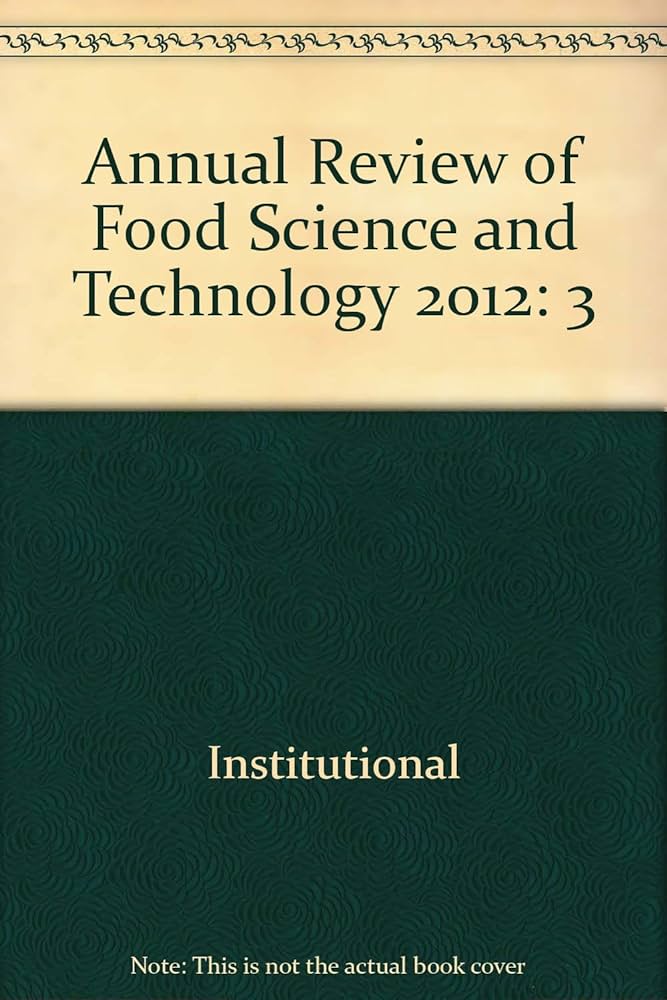减少食品生产过程中化石燃料使用的战略
IF 12.4
1区 农林科学
Q1 FOOD SCIENCE & TECHNOLOGY
Annual review of food science and technology
Pub Date : 2023-12-08
DOI:10.1146/annurev-food-072023-034332
引用次数: 0
摘要
我们的食品生产依赖于化石燃料的投入,才能生产出目前市场上种类繁多的不同食品。由于化石燃料燃烧会产生固有排放,而且许多国家只依赖少数化石燃料供应商,因此这种依赖带来了挑战。本综述旨在探讨这些挑战,并讨论几种缓解策略,以减少食品价值链中食品加工环节对化石燃料的使用。在这一具体步骤中,改变用于将原材料转化为可食用食品基质的能源类型大有可为,因为这些操作主要包括经常依赖天然气加热的流程以及用于机器操作和冷却的电力。这两种能源都可以用清洁和可再生的替代能源来取代,特别是随着地热供暖和电锅炉等替代供暖方式的安装和提供越来越频繁。不过,短期解决方案,如通过优化流程和集成智能传感器来降低能耗,也有助于在短期内减少总体能耗。本综述概述了这些策略,并深入分析了食品加工中使用的能源类型、不依赖化石燃料的可用清洁和可再生能源技术,以及目前存在的障碍和限制。显然,大多数所需技术已经可以在市场上买到,但要在食品生产中实施不依赖化石燃料的综合能源战略,还需要大量投资。《食品科学与技术年度评论》第 15 卷的最终在线出版日期预计为 2024 年 4 月。修订后的估算请参见 http://www.annualreviews.org/page/journal/pubdates。本文章由计算机程序翻译,如有差异,请以英文原文为准。
Strategies to Reduce Fossil Fuel Use in Food Manufacturing
Our food production relies on the input of fossil fuels to create the high variety of different food products currently on the market. This reliance has caused challenges due to the inherent emissions generated by the combustion of fossil fuels and the dependence of many countries on only a small number of fossil fuel suppliers. This review aims to look at these challenges and discusses several mitigation strategies to reduce the usage of fossil fuels in the food processing part of the food value chain. In this specific step, there is substantial potential to change the type of energy that is used to transform the raw materials into an edible food matrix because the operations mainly include processes that rely often on natural gas for heating and electricity that is used for machine operation and cooling. Both energy sources can be replaced by clean and renewable alternatives, especially with alternative heating options such as geothermal heating and electrical boilers being installed and offered more frequently. However, short-term solutions like energy reduction through process optimization and the integration of smart sensors can also help to reduce the overall energy use in the short term. These strategies are outlined in this review along with in-depth analyses of the types of energy used in food processing, the available clean and renewable energy technologies that do not rely on fossil fuels, and the current hurdles and limitations. It becomes evident that most of the required technologies are already available on the market and that considerable investments are necessary to implement a comprehensive energy strategy that does not rely on fossil fuels in food manufacturing.Expected final online publication date for the Annual Review of Food Science and Technology, Volume 15 is April 2024. Please see http://www.annualreviews.org/page/journal/pubdates for revised estimates.
求助全文
通过发布文献求助,成功后即可免费获取论文全文。
去求助
来源期刊

Annual review of food science and technology
FOOD SCIENCE & TECHNOLOGY-
CiteScore
22.40
自引率
0.80%
发文量
20
审稿时长
>12 weeks
期刊介绍:
Since 2010, the Annual Review of Food Science and Technology has been a key source for current developments in the multidisciplinary field. The covered topics span food microbiology, food-borne pathogens, and fermentation; food engineering, chemistry, biochemistry, rheology, and sensory properties; novel ingredients and nutrigenomics; emerging technologies in food processing and preservation; and applications of biotechnology and nanomaterials in food systems.
 求助内容:
求助内容: 应助结果提醒方式:
应助结果提醒方式:


